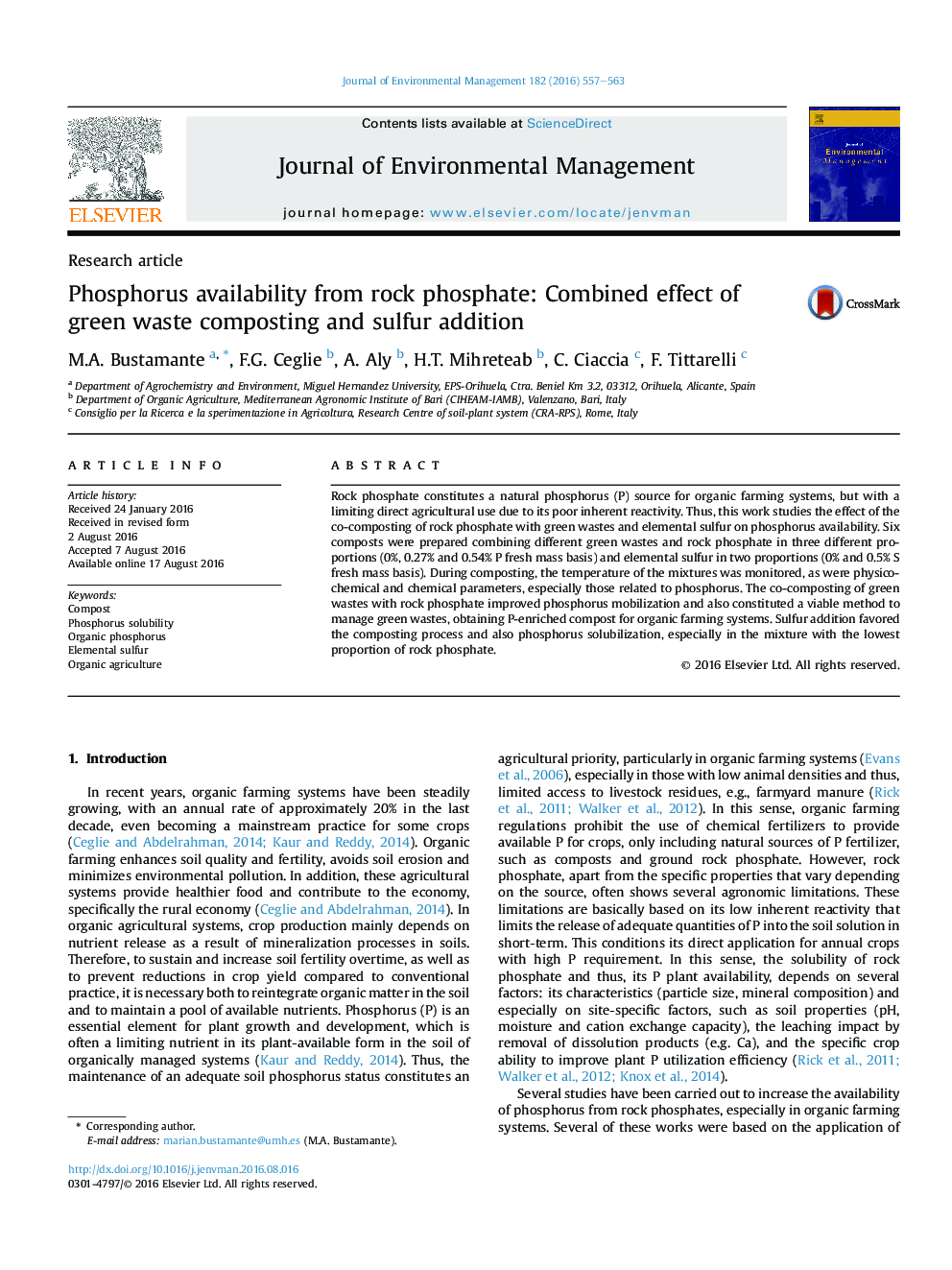| Article ID | Journal | Published Year | Pages | File Type |
|---|---|---|---|---|
| 7479248 | Journal of Environmental Management | 2016 | 7 Pages |
Abstract
Rock phosphate constitutes a natural phosphorus (P) source for organic farming systems, but with a limiting direct agricultural use due to its poor inherent reactivity. Thus, this work studies the effect of the co-composting of rock phosphate with green wastes and elemental sulfur on phosphorus availability. Six composts were prepared combining different green wastes and rock phosphate in three different proportions (0%, 0.27% and 0.54% P fresh mass basis) and elemental sulfur in two proportions (0% and 0.5% S fresh mass basis). During composting, the temperature of the mixtures was monitored, as were physico-chemical and chemical parameters, especially those related to phosphorus. The co-composting of green wastes with rock phosphate improved phosphorus mobilization and also constituted a viable method to manage green wastes, obtaining P-enriched compost for organic farming systems. Sulfur addition favored the composting process and also phosphorus solubilization, especially in the mixture with the lowest proportion of rock phosphate.
Related Topics
Physical Sciences and Engineering
Energy
Renewable Energy, Sustainability and the Environment
Authors
M.A. Bustamante, F.G. Ceglie, A. Aly, H.T. Mihreteab, C. Ciaccia, F. Tittarelli,
